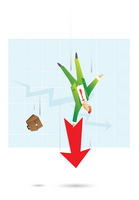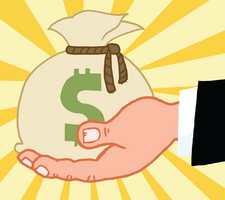 There are a number of reasons that people may want to review their current mortgages and consider moving to refinance. Understanding the cost versus the benefits can be the best step in moving in the best direction for each individual need.
There are a number of reasons that people may want to review their current mortgages and consider moving to refinance. Understanding the cost versus the benefits can be the best step in moving in the best direction for each individual need.
Some of the questions to consider are have interest rates fallen? Do you expect them to go up? Has your credit score changed so that you might be eligible for a lower-rate mortgage? Would you like to switch into a different type of mortgage?
How you answer these questions will influence your decision to refinance your mortgage. But before deciding, you need to understand all that refinancing involves. Your home may be your most valuable financial asset, so you want to be careful when choosing a lender or broker and specific mortgage terms. Remember that, along with the potential benefits to refinancing, there are also costs.
Even with the added expenses associated with refinancing, it may still be a wise financial decision to make. Knowing the best reasons to refinance (and some of the worst) can help you decide when to jump in.
Know your reasons to refinance.
Lower interest rates. Find rates that are a point or more lower than your current rate (without buying down that rate). The savings that can be made on the payments and ultimate interest may be worth taking on the added costs of refinancing.
Debt reduction. Using the equity of a home for paying off other debts should only be considered as a last resort. Be sure to seek financial counseling before making the move so that the debt does not return after the refinancing. Equity can allow high interest debts, like credit cards, to be rolled into the lower interest rates of a mortgage.
Convert a loan with an adjustable rate to a fixed rate. With interests rates at some of the lowest in recent history it may be time to convert the loan from an adjustable rate to a fixed rate.
Reducing the length of the mortgage. Moving from a 30 year to something shorter, like 15 or 10 years, may push up the monthly payments for a mortgage. However, the long term savings will be measured in the thousands.
No-cost refinancing. Your lender may have a program available that will allow you to refinance at a lower cost with no out-of-pocket expenses. Be sure to read the fine print. If there are NO charges or if the charges are just rolled into the loan, you do not have to pay them now.
Cash out for personal or financial investments. Although it may not be the best reason, cashing out a refinance may provide the funds for paying for more education to secure a higher paying job, stepping out into an entrepreneurial endeavor, or securing a retirement investment.
Knowing when not to refinance can be just as important.
To pay off debts AGAIN. If you have already cashed out the equity once to pay off debt then skip doing it this time. Take steps to change your spending habits first to learn how to eliminate debt more effectively.
To extend the length of the mortgage. Making the terms of the mortgage longer may reduce the monthly payment but only because the amount gets paid back over such a long time.
To cash out for miscellaneous spending. Refinancing to get cash for a vacation, a new toy or some other non-necessity is never a wise financial decision.
There are a number of different reasons that people choose to refinance. Weighing the costs versus the benefits will help you know what the best reasons to refinance your mortgage are.
 There are a number of reasons that people may want to review their current mortgages and consider moving to refinance. Understanding the cost versus the benefits can be the best step in moving in the best direction for each individual need.
There are a number of reasons that people may want to review their current mortgages and consider moving to refinance. Understanding the cost versus the benefits can be the best step in moving in the best direction for each individual need. 

